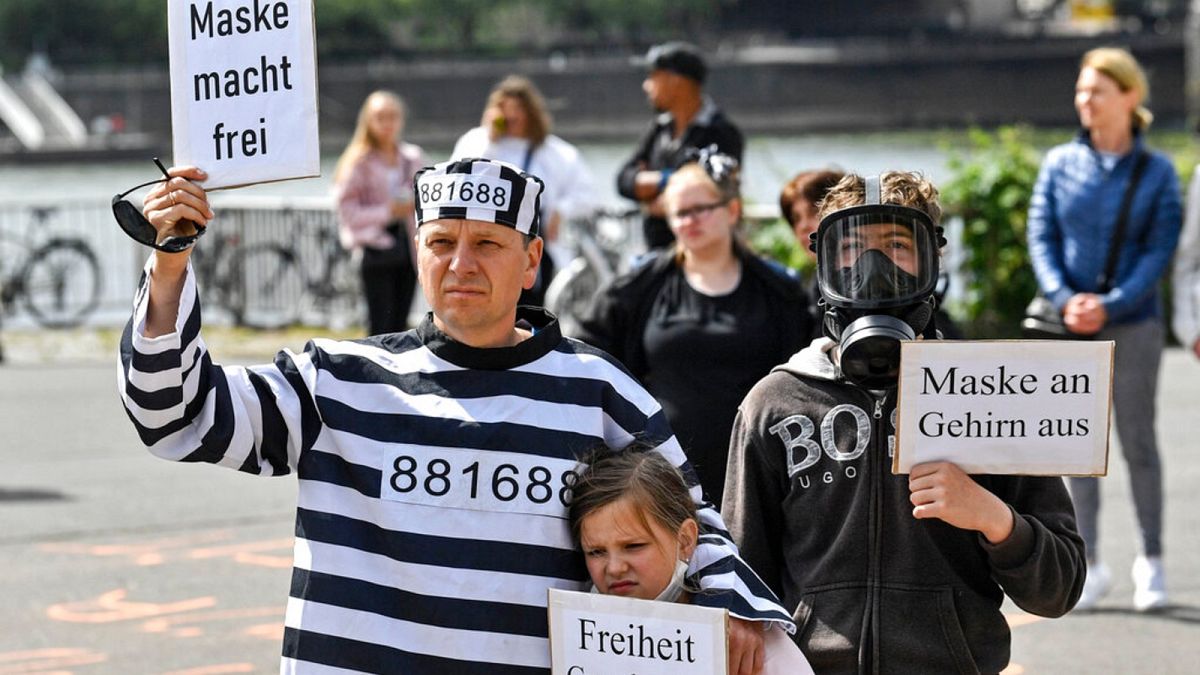Each January, a jury of German linguists picks out what it calls the "non-word" of the year: a word that’s ugly because of what it means.
The German language is full of tongue twisters and words that don’t always sound very pretty.
Every January, a jury of German linguists picks out what it calls the "non-word" of the year: a word that’s ugly because of what it means.
This year was apparently so inspiring it yielded not one, but two winners: "Corona-Diktatur" and "Rückführungspatenschaften".
"Corona-Diktatur" (“Coronavirus dictatorship“) was a slogan often heard during anti-lockdown protests in Germany last year.
"Rückführungspatenschaften" refers to the EU’s "sponsored returns" scheme for migrants. The bloc's latest migration pact indeed allows member states to either take in more asylum seekers or help send them back to their countries of origin.
The jury, from the Technical University of Darmstadt, said it selected two words this year to show that "inhumane and inappropriate" terms had emerged in the German language because of politics, and not just because of the pandemic.
Watch the report by Euronews' Berlin correspondent Kate Brady in the video player above.
